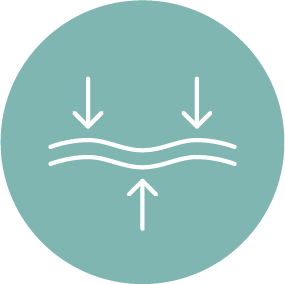breeze through steps 1,2,3
- PREP Prepares the skin by removing surface impurities and dead skin cells, allowing for better penetration of the peel solution.
- PEEL Applies a customized chemical solution to exfoliate the outer layer of skin, revealing smoother, brighter, and more even-toned skin underneath.
- NOURISH Soothes and hydrates the skin post-peel with calming and nourishing ingredients, promoting healing and regeneration for a radiant complexion.
- Prep Prepares the skin by removing surface impurities and dead skin cells, allowing for better penetration of the peel solution.
- PEEL Applies a customized chemical solution to exfoliate the outer layer of skin, revealing smoother, brighter, and more even-toned skin underneath.
- nourish Soothes and hydrates the skin post-peel with calming and nourishing ingredients, promoting healing and regeneration for a radiant complexion.
key benefits

Hydration

Acne

Brightening

Fine Lines and Wrinkles

Scarring/Texture

Rosacea/Redness

Large Pores

faq's
Results and intensity of the chemical peel treatment tend to vary. Some peels are mild and attempt to hydrate the skin, while more intense peels work to significantly reduce pigmentation. Depending on which chemical peel is applied, we recommend incorporating chemical peel treatments into a normal skin care regimen, typically involving monthly treatments.
Because of the variance in intensity, downtime varies as well. Most peels result in redness for up to 48 hours following the process. No matter the peels applied, clients need to say away from direct extended exposure to sun for at least 2 weeks. It is common that clients may experience flaking skin for 3-5 days post-treatment.
That depends on the goals you intend to achieve with your chemical peel treatment. When treating a skin condition such as pigmentation or melasma, it is recommended to return every 6-8 weeks. We recommend incorporating chemical peel treatments into a normal skin care regimen, which typically involves monthly treatments.
- Consult your Aesthetician in training for a customized treatment plan and home care recommendations.
- Avoid washing or wetting your face for 4-8 hours post-treatment.
- Wash your face gently with circular motions and pat dry.
- Allow peeling to occur naturally; do not pick or force it.



